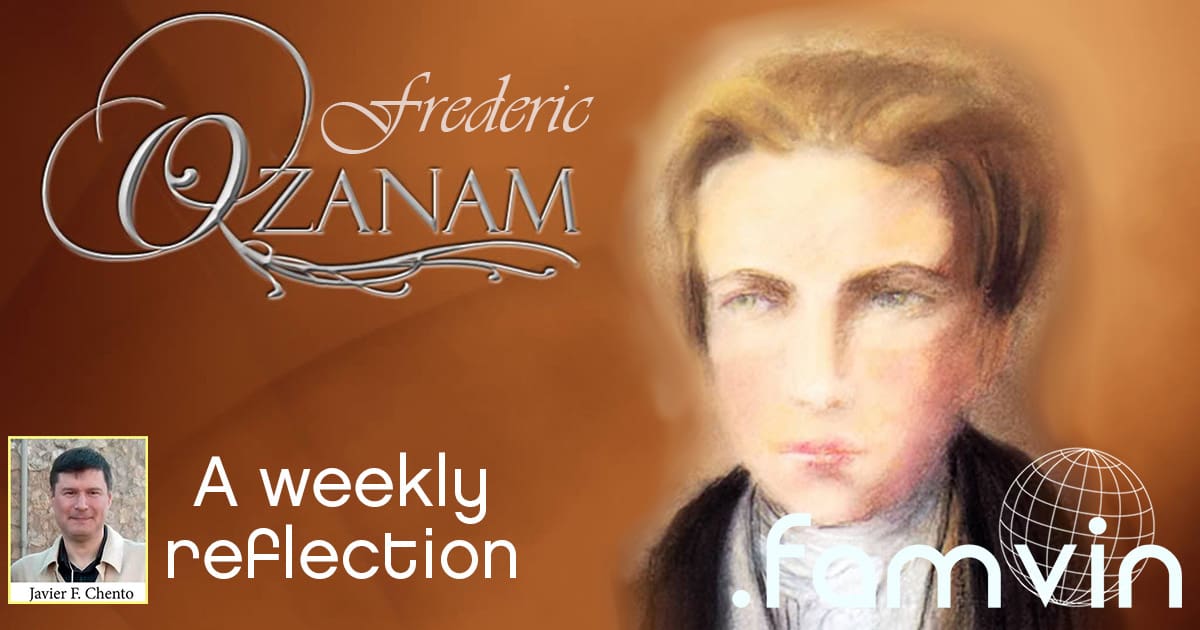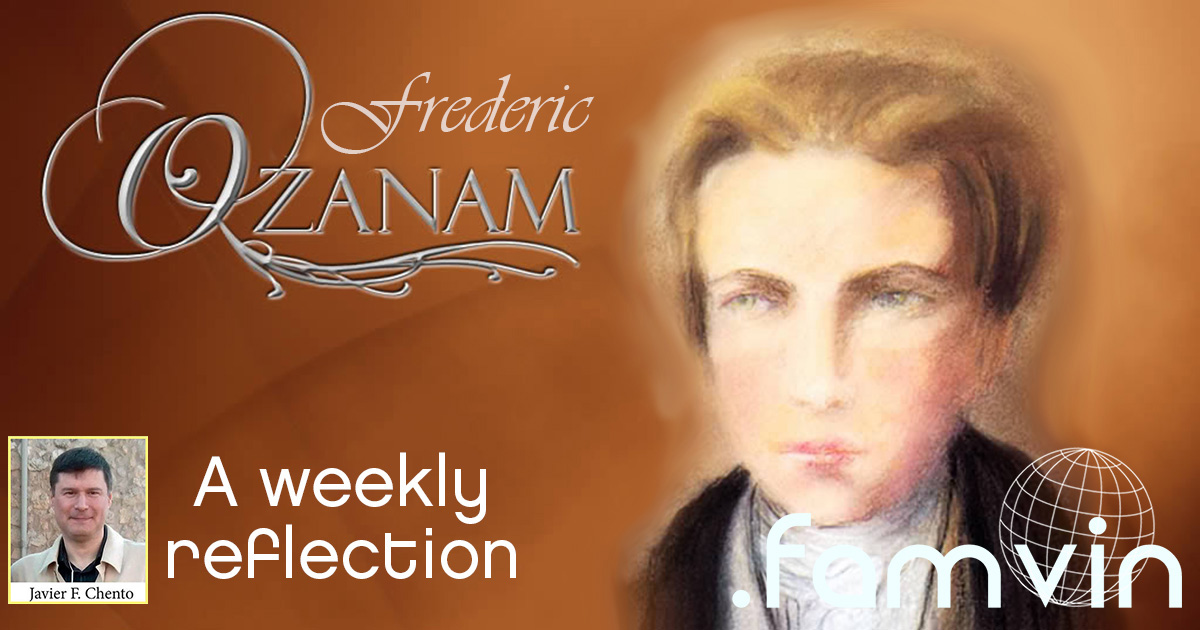Responsible for Proclaiming the Word of God • A Weekly Reflection with Ozanam
Dear friend, we have not faith enough; we are always looking for the re-establishment of religion by political means; we dream of a Constantine who, with one blow and one effort, would bring back the nations to the fold. The fact is we don’t really know the history of Constantine — how he became Christian precisely because half the world was already Christian — how the crowd of skeptics, scoffers, and courtiers who thronged after him into the Church only brought with them hypocrisy, scandal, and relaxation. No. it is not laws, but morals, that make conversions. Consciences must be laid siege to one by one […]. We must not ask God to send us bad governments, but we must not try to give ourselves a government that will relieve us of our duties by taking on itself a mission for the souls of our brothers and sisters which God has not confided to it.

Frederic Ozanam, Letter to Alexandre Dufieux, April 9, 1851.
Reflection:
- The Church-State relationship has always been a hot topic. It was also in the times of Ozanam. Many, then, advocated a manifestly Catholic state, which effectively supported the Catholic religion and established said religion as a “state religion.”
- Frederic, in this letter, puts things in their proper perspectivge. The story of Constantine is known, though perhaps misinterpreted, as Ozanam himself says: sociologist Rodney Stark suggested that the Edict of Milan (in 313, which established freedom of religion in the Roman Empire and ended the persecutions directed against certain religious groups, Christians in particular) was not the cause of the triumph of Christianity, but a cunning response of Constantine who saw the exponential growth of the number of Christians in the Roman Empire. Perhaps it was a political play by Constantine, who did not get baptized until his deathbed. In any case, history may have misinterpreted this episode which established Christianity as the state religion in the Roman Empire, when, in fact, conversions were already abundant among the people.
- Another very different issue is the need for Christians to be present in public forums, to improve society. It is not only a right, but an obligation for all of us.
- But conversions are not achieved through laws. It is neither the right nor the obligation of the State to do this. It would be an aberration. Our faith is transmitted face to face, in the close and friendly encounter with people.
- Let us emphasize this pivotal concept of Ozanam: it is an obligation of the believers to proclaim the Gospel. It seems so simple to say, but to do? And yet it is the mission entrusted to us by Jesus Christ, in his last moments on earth: “Go into all the world and preach the gospel to every creature” (Mk 16:15). St. Vincent teaches us, his followers, how the Gospel is truly proclaimed: by word and by deed. Only by uniting these two elements do we truly build the Kingdom of God.
Questions for dialogue:
- What is the quality and depth of the Vincentian presence in social and political forums?
- Do we attempt to evangelize “by words” our acquaintances and people close to us?
- Do we attempy to evangelize “by deeds”, (with our hands and “the sweat of our brow”) and thus build a more humane society?
Javier F. Chento
![]() @javierchento
@javierchento
![]() JavierChento
JavierChento








0 Comments